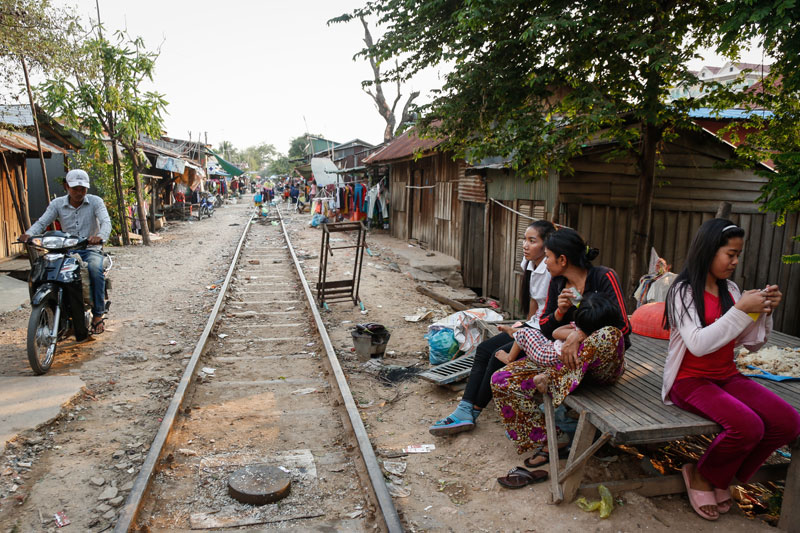A government official rejected calls from a pair of NGOs on Tuesday to do more for Phnom Penh’s slums amid what they described as an opaque land-titling system that has routinely failed poor communities.
In a joint report, “The Exclusion of Urban Poor Communities From Systematic Land Registration in Phnom Penh,” World Vision and the NGO Forum seek to shed light on a titling system that has left many of the city’s slums behind.

The municipal government last year said there were 503 slum communities within city limits, which are home to more than 24,000 families, or about 140,000 people out of a total population of roughly 2 million. For their report, the NGOs interviewed about 60 families in 12 slums that the government has not put through the land-registration process.
According to the report, 10 of the 12 communities were officially informed that they would not be registered, but only half were given a reason. Even when they were offered an explanation, it was usually that the area was “too complex” or had “unclear status,” the report adds, neither of which has a legal definition in Cambodia.
“The use of such justification to arbitrarily exclude families with claims of possession…presents a significant loophole that may permit land grabbing by powerful parties at the expense of urban poor communities,” it says.
A prime example is Phnom Penh’s Boeng Kak neighborhood, whose residents were denied a chance at titles after City Hall leased the site in 2007 to CPP Senator Lao Meng Khin and later forced some 3,000 families out of their homes.
World Vision and the NGO Forum said the 12 slums they surveyed for the report were not facing eviction. But they said most families were still struggling to feed themselves and that the lack of land titles was keeping them from taking out low-interest bank loans that could help pull them out of poverty.
Of the dozen slums, they said, 11 were probably denied a chance at titles because they sat on state public land, which by law cannot be titled.
But NGO Forum director Tek Vannara said the government should still take responsibility for those families because it let them put down roots without letting them know that they legally could not.
“We ask the government to improve the sites and reconsider [titles] for them even though they are living illegally,” he said by telephone after the report’s launch.
The NGOs want to see the government go back to the communities left out of the registration process and offer a chance at titles to families with legitimate claims or that were denied a chance in the first place because of public infrastructure projects that encroached on their land.
At the report’s launch, however, Soun Sopha, the Land Management Ministry’s land administration director, denied that the government had treated any of the communities unfairly.
“The ministry cannot accept this report,” Mr. Sopha said. “We cannot accept it because…the communities are living on public land that cannot be registered.”
“There is no discrimination,” he added. “If you are rich or poor, short or tall, you will be registered if you comply with the land law.”



